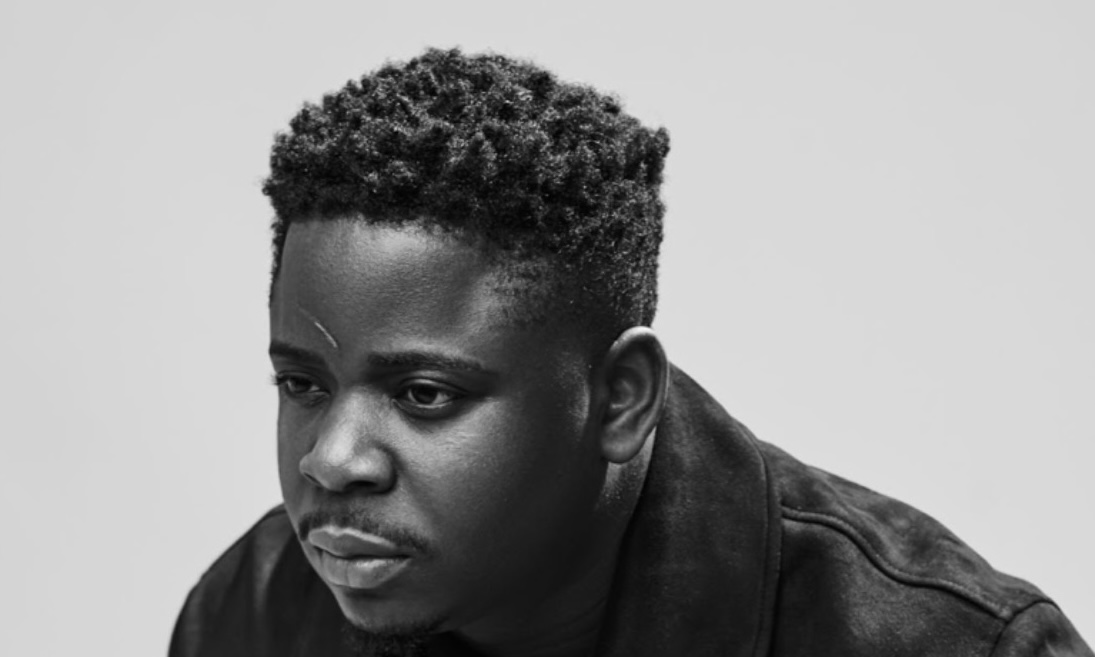Lagos is not often associated with love despite Nollywood’s strong push for its association with films like Christmas in Lagos and Love in Lagos. Yoruba demons and situationships that will wreck you for months are the city’s speciality. Show Dem Camp and The Cavemen said it better with their song No Love in Lagos but Lola Teru is subverting the comma with her multisensory art exhibition, Dating in Lagos.
The exhibition invites people to sit with vulnerability: the feeling of losing love, longing for it, experiencing all the highs and lows in a city lauded for its promiscuity. A year ago while cleaning her apartment, she found a dress from an ex-lover, then a scarf, then a toothbrush, then a sponge, almost like she was on a scavenger hunt but what she did not was that she was mapping out the blueprint of Dating in Lagos.
Picking up bits her ex-lovers left behind made her think about the non-physical things we leave behind after the demise of a relationship: the emotional toll and how these experiences shape our becoming. This singular experience made her imagine her exes finding pieces of her in their apartments too. This experience, she concluded, was a collective one simply because of its familiarity; we all participate in the mating call, we all do the dating dance.
Staging the exhibition in what is known as Nigeria’s Sodom and Gomorrah was intentional. “In this city, we gather to discuss the fluff, the flashy stuff, but never about our actual connections. I wanted to see what that’ll look like,” she explains. And on October 31 and November 1 at Amah Studio, people will get to experience Lola Teru’s Lagos, a city where vulnerability lurks in the corners, where tenderness can be found in the backseat of a Danfo. And if you fail to see that Lagos, she invites you once again to look on November 9 and 16 at the British council.
49th Street sat briefly with Lola Teru to discuss Dating in Lagos; we talked about love and vulnerability in a city that seems to recoil at the sight of rawness, the collective experience of breakups, heartbreaks as an archive and the cultural symbolism of this exhibition.
Lagos has a reputation for being fast, transactional, and even chaotic. How did you approach showing tenderness and vulnerability within that same context?
Lola Teru: That’s something I think about a lot: how to show softness in a city that rarely gives you space to be soft. Lagos moves fast, and love here can feel like survival sometimes. But underneath all that noise, there’s tenderness. You see it in small, fleeting moments: a text that comes through after hours of silence, a shared laugh even when things aren’t perfect.
For Dating in Lagos, I want to slow all of that down. To hold those quiet gestures up to the light and say, “This, too, is Lagos.” The vulnerability is already there; it just gets buried under the city’s pace. By creating stillness through images, sound, and intimacy, I want people to feel that pause, that breath, where you remember you’re human again.
The recreated bedroom feels deeply personal, almost like walking into someone’s heartbreak or hope. How did you decide what elements of Lagos dating culture to physically bring into that space?
Lola Teru: It is a recreation of my rooms at different points, a conclave of the things I’ve carried with me and some. My bed is the best place to be in the world for me, a fortress through different conditions. I wanted to bring that sense of refuge and reflection into the space. So much of dating in Lagos happens in these in-between places, in cars, on beds, on balconies. The bedroom becomes a metaphor for both solitude and connection, a place where love, longing, and exhaustion coexist.
I also pay attention to the small, ordinary things: the kind of fan that hums, the half-drawn curtain, and the scent of perfume that lingers. Those are all part of how intimacy feels in this city. I wanted to show the layers of how we love and survive here.
There’s a cinematic quality to this project. It reminds me of The Broken Hearts Gallery, where heartbreak becomes an archive. Were there any films, books, or art pieces that shaped how you wanted people to feel inside Dating in Lagos?
Lola Teru: That’s such an interesting connection. I love the idea of heartbreak as an archive; that’s very much what Dating in Lagos is about. I was thinking a lot about how memory lingers in objects, in places, and in gestures. Visually, I’ve always been drawn to filmmakers who treat intimacy like texture, Wong Kar-Wai, for instance, and the way he lets longing breathe in In the Mood for Love.
Closer to home, I was inspired by how Lagos itself performs, the unrest, the rare moments of stillness, and the light shifting through curtains at 5 p.m. Inside the installation, I want people to feel suspended, like they’re inside someone’s memory, or maybe their own.
What’s the best piece of relationship advice you’ve ever received, and has it shaped how you navigate love or how you built this exhibition?
Lola Teru: Trust your gut. I’ve learnt to trust my body over time. If my nervous system is on edge around someone, that’s already telling me something. Love shouldn’t feel like tension. If I can’t find ease or calm in someone’s presence, it’s rarely sustainable.
How would you personally define love, outside the noise of Lagos and outside expectation?
Lola Teru: I think love, outside the noise, is gentleness. It’s that quiet understanding that you can just be without performing, without rushing to prove anything. Outside Lagos, outside expectation, love feels like stillness. Like two people finding calm in the middle of everything. It’s softness, care, attention, and the small things that make you feel seen.
I’ve also come to think love isn’t always about who stays, but how we show up for ourselves and for others, even when it’s difficult. That steady commitment to presence – that to me, is love.
Why now? What does it mean to you to create ‘Dating in Lagos’ in this moment, socially, emotionally, or even politically, and what does it say about how we’re all loving today?
Lola Teru: I think it has to happen now because love feels fragile but also urgent. We’re all moving through so much burnout, uncertainty, and survival, and still, we’re trying to connect. Dating in Lagos came from that tension: wanting to be seen deeply in a city that often asks you to perform strength all the time.
Socially, it feels like we’re all relearning intimacy, how to be vulnerable again, how to ask for care, and how to be honest about what we need. And politically, there’s something radical about softness, about choosing tenderness in a place that can be harsh, choosing to love even when the odds feel stacked.
For me, this project is a kind of time capsule. It’s saying, “This is what it feels like to love right now – messy, hopeful, complicated, but still real.” And maybe by naming it, by showing it, we can start to love with more awareness, more empathy, and more courage.
The exhibition invites people to interact, to confess, and to reflect. What do you hope people leave behind in that space, and what do you hope they take with them?
Lola Teru: Dating in Lagos feels like more than an exhibition; it’s almost a collective exhale, an archive, a space where people can see themselves reflected without judgement.
I hope people leave behind whatever they’ve been holding on to: the stories that still sting a little and the versions of love they’re still trying to understand. The space was made for that kind of release.
And I hope they take with them a bit of tenderness. Maybe a feeling of being understood, or just the relief of knowing that everyone’s trying to figure it out too. Dating in Lagos isn’t really about answers; it’s about honesty, about allowing yourself to feel everything that comes with connection.
That’s why there are moments where you can write, confess, or just sit with your own memories. I want people to interact with the space in a way that feels personal, to leave something behind, and in doing so, make room for something new. If they walk out a little lighter or a little more open, then the space has done what it needed to do.





